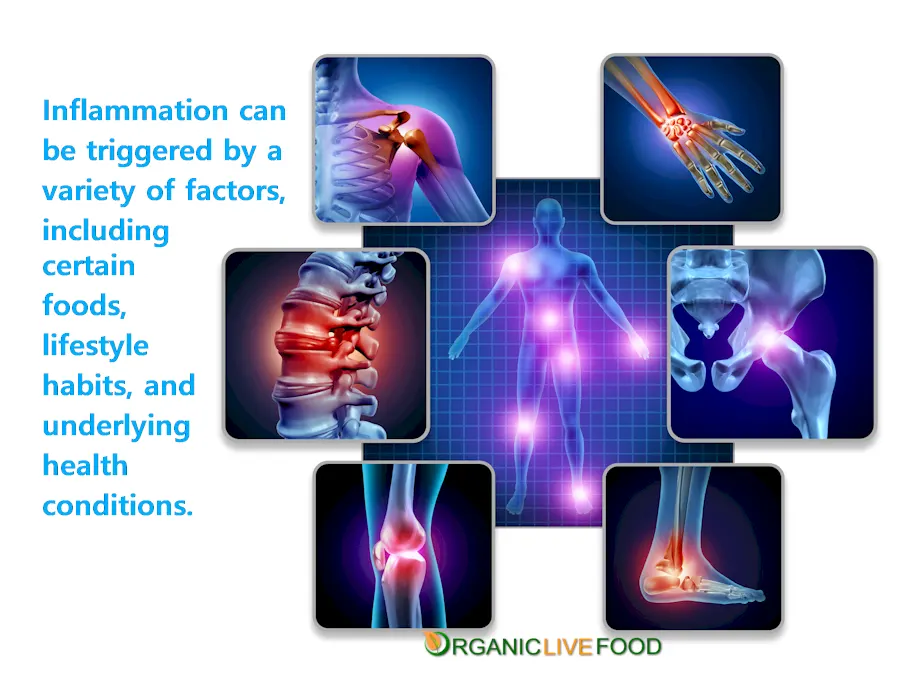Inflammation Underlying Resolution: Our Body's Immune System
- Posted/Updated: February 12th, 2026
Chronic inflammation can have diverse and serious impact on overall health and well-being.
Inflammation is a complex biological immune system response involving various processes in the body, including 1) Initiation, 2) Response, 3) Resolution.
In 2004, The Time Magazine (Feb 23, 2004 issue) referred to Inflammation as the Silent killer. It stated: “Inflammation is the body’s first defense against infection, but when it goes awry, it can lead to heart attacks, colon cancer, Alzheimer’s, and a host of other diseases”.
Specialized pro-resolving mediators (SPMs) are released, promoting the clearance of inflammatory cells and debris and facilitating tissue repair and regeneration.
"We're increasingly understanding that inflammation plays a key role not only in the development of diseases but also in their severity and progression." --- Dr. David Perlmutter
"Understanding the connection between inflammation and disease is crucial for effective prevention and treatment strategies." --- Dr. Tieraona Low Dog
Inflammation is a protection mechanism; the body’s natural and healthy response to injury or threat.
When the body is exposed to an injury, microbe, or tissue damage, these are regarded as something the body needs to get rid of.
Inflammation is a natural response by the body to protect itself from harm or injury. If it cannot heal the body, then it become problematic and leads to chronic inflammation, which is why it is very important to find out the roots of inflammation in order to prevent and/or heal the body.
Excessive or chronic inflammation can lead to various health issues and increase the risk of developing chronic diseases.

Properly managing inflammatory responses is crucial for maintaining overall well-being.
Here are some effective strategies you can discuss with your healthcare professional to help manage inflammation in the body:
- Follow an Anti-Inflammatory Diet
- One of the most powerful ways to manage inflammation is through proper nutrition. Consuming a diet rich in anti-inflammatory foods can help reduce inflammation and promote healing. Include foods such as fatty fish (e.g., salmon), leafy greens, berries, nuts, and olive oil in your diet. These foods contain omega-3 fatty acids, antioxidants, and other compounds that have anti-inflammatory properties.
- Limit Inflammatory Foods
- Certain foods can exacerbate inflammation and should be limited or avoided. These include processed foods, refined carbohydrates, sugary beverages, fried foods, and foods high in trans fats. These foods can trigger an inflammatory response in the body and contribute to the development of chronic inflammation.
- Maintain a Healthy Weight
- Excess body weight can lead to increased inflammation in the body. Adopting a healthy lifestyle that includes regular physical activity and a balanced diet can help manage weight and reduce inflammation. Aim for at least 150 minutes of moderate-intensity exercise per week and focus on maintaining a healthy body mass index (BMI).
- Manage Stress
- Chronic stress can have a profound impact on inflammation within the body. Finding effective stress management techniques such as meditation, yoga, deep breathing exercises, or engaging in hobbies can help reduce stress levels and positively influence inflammatory responses.
- Get Sufficient Sleep
- Sleep plays a vital role in regulating the body's immune system and reducing inflammation. Aim for 7-9 hours of quality sleep per night. Establish a regular sleep routine, create a comfortable sleep environment, and avoid stimulating activities before bed to promote better sleep quality.
- Stay Hydrated
- Proper hydration is essential for overall health, including managing inflammation. Drink an adequate amount of water throughout the day to keep your body hydrated and promote optimal cellular function. Avoid excessive consumption of sugary drinks and alcohol as they can contribute to inflammation.
- Medical Intervention
- In some cases, managing inflammatory responses may require medical intervention. If you have a chronic inflammatory condition or are experiencing persistent inflammation despite lifestyle changes, consult a healthcare professional. They can provide personalized advice, perform necessary tests, and prescribe appropriate medications or therapies to help manage inflammation effectively.
By incorporating a few changes into your daily routine, you can effectively manage inflammatory responses in the body.
Remember, consistency is key, and it may take time to notice significant improvements. Prioritize your health, make informed choices, and take proactive steps towards reducing inflammation for a healthier, happier life.


